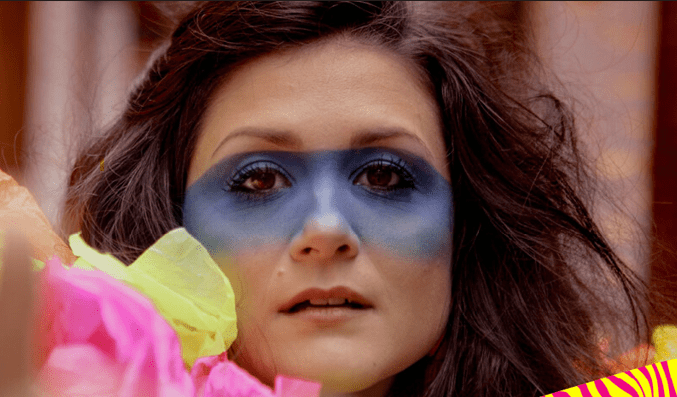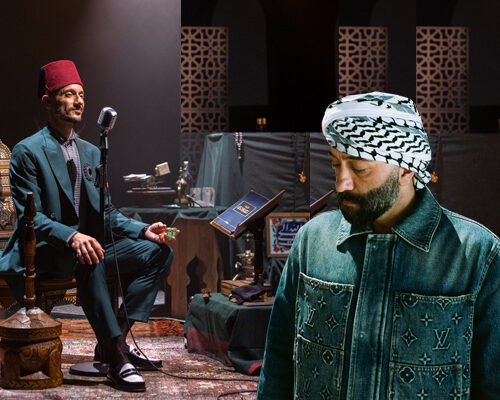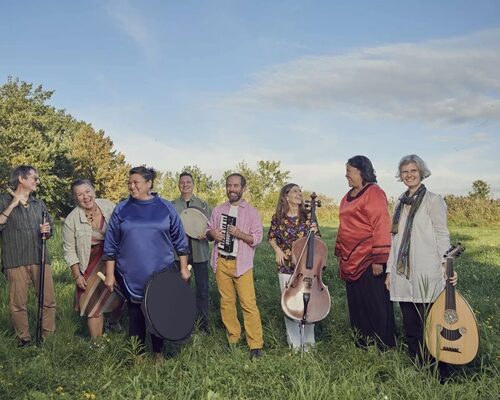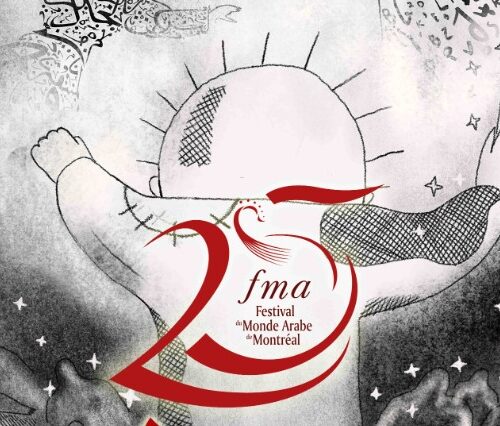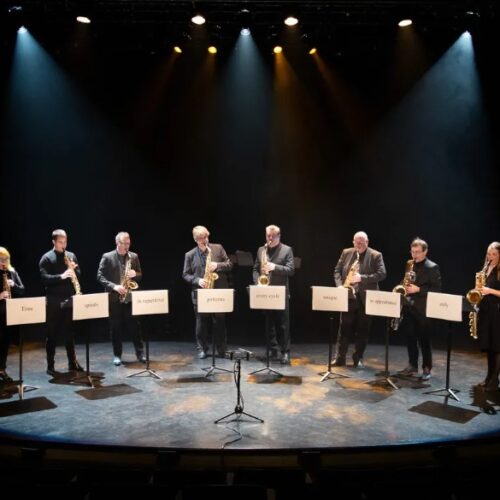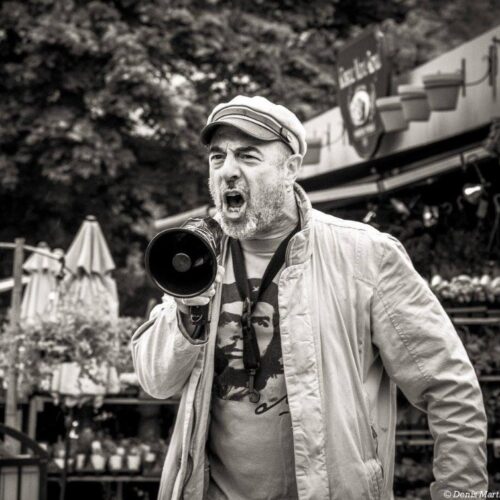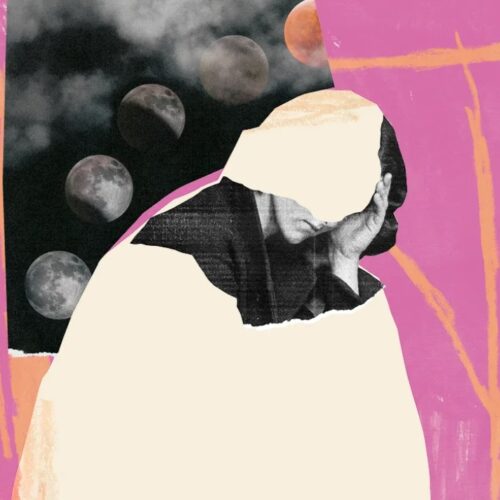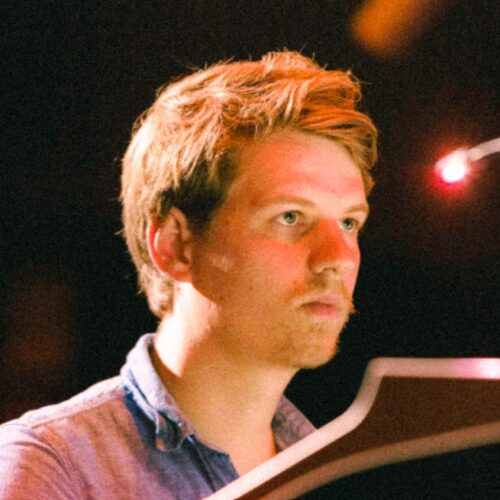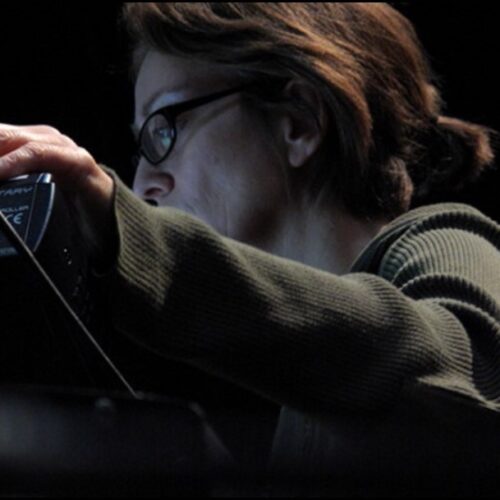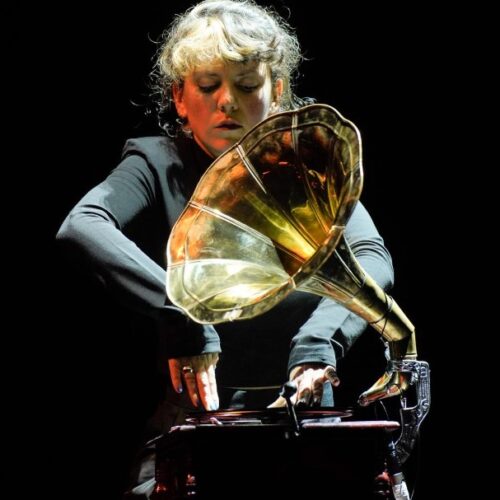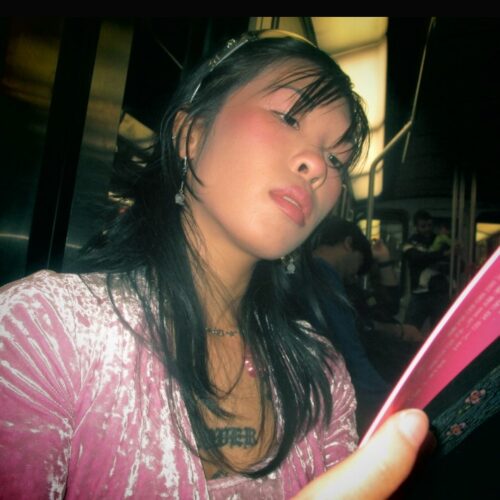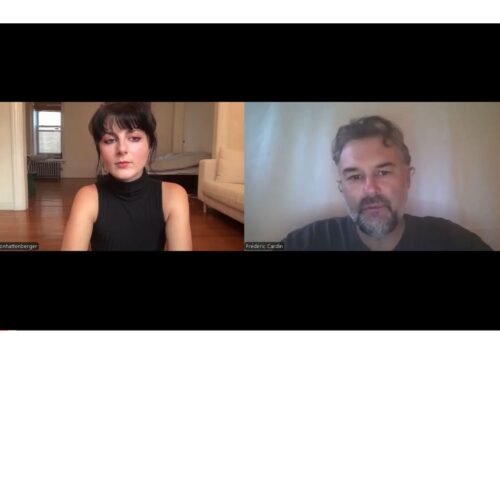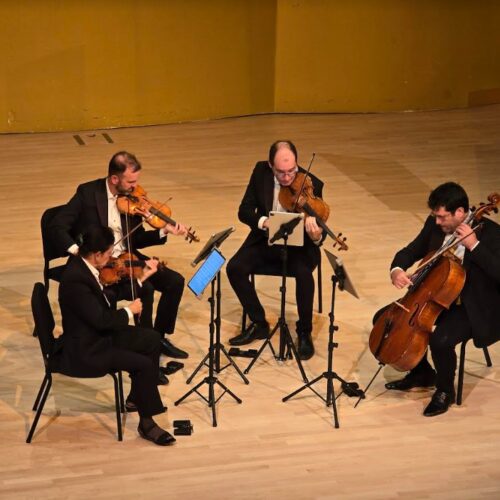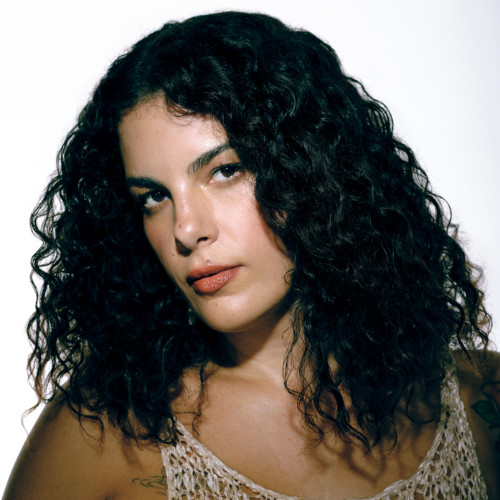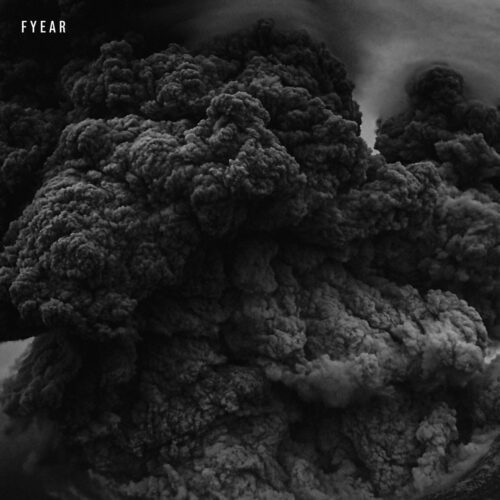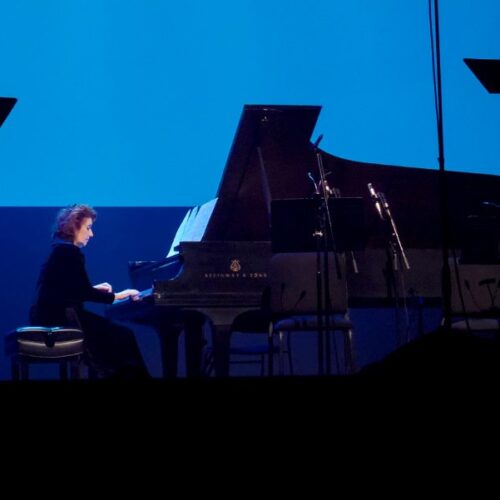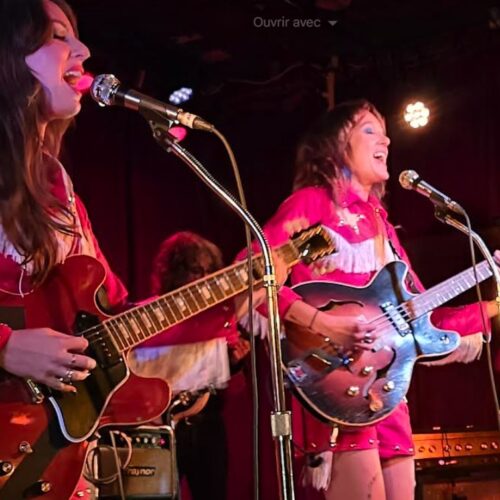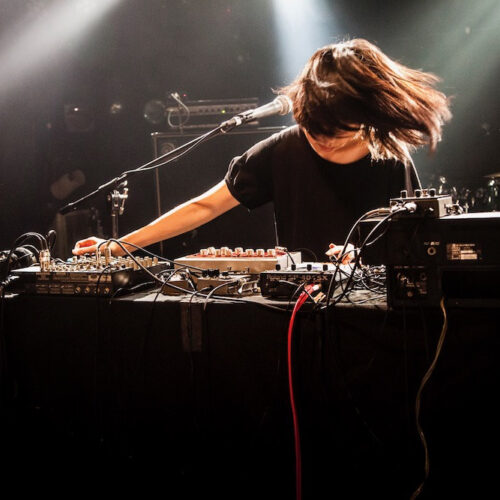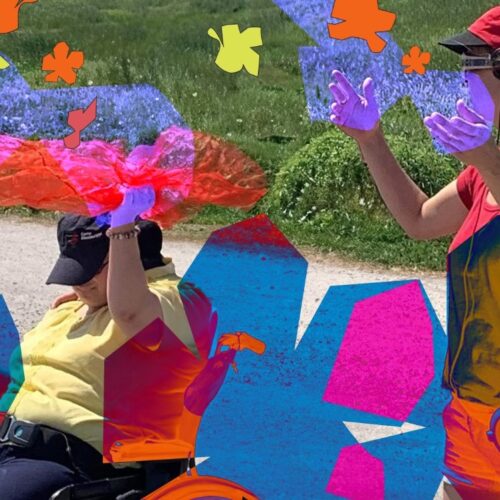Additional Information
Bianca Rocha, a Brazilian musician who immigrated to Canada in 2019, found her footing in Montreal thanks to Nuits d’Afrique. She’s since performed at every subsequent festival, but this year is special; she’ll be bringing her debut album, 2022’s Fim de Mundo, to the festival stage for the first time.
PAN M 360: Hi Bianca. Could we start with you telling us about your 20 years of experience with various musical genres, as well as your degree in music education?
Bianca Rocha: I grew up in a family of musicians – singers, in fact, and I’m the youngest of four kids. I started my career singing with my sister, two brothers, and my father on a weekly basis when I was three years old. We competed in a Brazilian radio show, then after I became an adult, I did my bachelor’s in music to be an instructor for babies. Before leaving for Montreal, I was a teacher and singer, but since I’ve gotten here, I’ve moved away from teaching. Now I do a lot of different work as a singer, mostly working in studios and vocal directing.
PAN M 360: What brought you from Brazil to Montreal in 2019?
Bianca Rocha: It’s because of my husband, actually. He’s a program coordinator and he got a job offer from some friends. It was also a question of Brazil’s elected president being far-right. I was afraid of all that, and his election concretized my fears and nightmares since we have a kid. We took it as an opportunity to leave. With Montreal and Quebec it was love at first sight so we decided to stay.
PAN M 360: What made you fall in love with Quebec?
Bianca Rocha: The cultural side. I love being part of the mix of cultures. I see, with eyes full of hope, the mix of people who come from different parts of the world, different countries I couldn’t even find on a map. Being part of this musical scene – this experience – is magical, and it gives me hope for a better world because people can leave next to one another without war. The experience of being a musician is the same here; there’s a vibe of hope.
PAN M 360: How would you say you’ve translated that feeling into your newest album, Fim du Mundo?
Bianca Rocha: The album is based on a poem that was given to me by a close friend as well as how we have to do something about the environment, and the Portuguese expression ‘Fim du Mundo.’ The expression describes the end of the world in our personal lives, like when we end a relationship or when something really sad happens that destroys our world. When I read the poem, I thought about this, because I wanted to talk about how you can rebuild your personal world when it burns or breaks. But when people talk about the end of the world I think about how, in 2023, there’s this big environmental question. In both situations, you have to have hope, and you have to do something. You can’t just give up. There’s a lot we can do – a lot of demands we can make to politicians and world leaders – which is the hope I’m trying to communicate in these songs.
PAN M 360: What’s the importance of being able to address these topics, to you?
Bianca Rocha: As a human being, I see how we’re all part of the same worldwide group. I have a voice, I can sing. I wouldn’t say it’s an obligation – that wording is a little strong – but I feel obliged to do something, so I use my voice. That’s why I promote recycling and try to reduce pollutants in my daily life.
PAN M 360: Is there a connection between these ideas and your desire to immigrate from Brazil?
Bianca Rocha: I don’t think so. I think it helps me see things on a grander scale. I saw mostly Brazilian perspectives before I moved, but now I talk with people who give me more references for how things work elsewhere.
PAN M 360: When you immigrated in 2019, that was also the first year you performed at Nuits d’Afrique, and you’ve been performing there for a couple of years now. What brings you back to the show every year?
Bianca Rocha: Nuits d’Afrique isn’t the first scene I played here, but it’s the first festival I played, with Rodrigo Simões. The festival is significant to the passion I have for Montreal. The festival always takes place at the beginning of summer, and I got here in April. I was in the process of getting to know the city and its vibe because we didn’t do a lot of research before we came here. So when I got here and saw the festival it was love at first sight again, because it’s a place where immigrants like myself or people from elsewhere are spotlighted and valorized. It gave me a lot of hope for the world. I decided to come back every year and it’s always been a different experience, so I’m always going to keep an open door and an open heart for the festival. It’s also a respectful event, and I love that.
PAN M 360: And what are you doing at this year’s show that’s different?
Bianca Rocha: This year’s concert is special because it’s the first year I’m presenting songs from my album. In previous years I was always presenting music from other peoples’ projects. I also chose a more festive repertoire, and the most special part is that I’ll be sharing the festival stage with Flavia Nascimento for the first time. In the Brazilian community, we call her The Sun because her voice, strong energy, and heart always make everything sunny. She has an enormous heart and sharing the stage with her is always a pleasure, so I’m really honoured to have her with me to share our culture.
PAN M 360: What kinds of projects are you working on currently?
Bianca Rocha: I have a few things already in the works. There’s one special that’ll come out in the Fall – I don’t have the date but it’s La Sauce Piquante with Eli Levinson. Another cool project I’m doing involves mostly women I know here in Montreal. I can’t talk about it much more because I want to keep it secret. I also have a music video that just came out – my last single from my recent album – that had a good reception. It talks about violence towards women, and in this case, specifically, it’s about a woman who’s too scared to leave her home.
PAN M 360: Why is it important for you to be able to get feminist messages out?
Bianca Rocha: When someone is alone in a violent situation, it can feel lonely, and like it’s impossible to leave. The song is a message for people to be more attentive and empathetic because everyone knows someone who’s been in a situation involving physical or psychological violence. There are plenty of people around my age in Brazil too who have experienced this. The message of music is that you’re not alone. You’re always in your own corner. You can recover and find yourself, and when you decide to leave, you need to ask for help. There are organizations and people who are there to support you in these moments – more and more around the world lately – but it’s still necessary to talk about this.
PAN M 360: Thank you so much Bianca, it’s admirable that you have the strength and bravery to share these messages. Good luck with Nuits d’Afrique!
